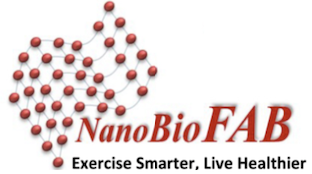NANOBIOFAB Awarded a $250,000 Defense Health Agency SBIR grant
Awarded for Inkjet assisted Nano printing sensing platform for high-throughput flexible sensors discovery proposal
“The driving strategy for Nanobiofab is to build and deliver a high-yield synthesis and discovery platform to the military, sensor vendors and eventually the general medical/healthcare markets.” – Xiaonao Liu, founder, Nanobiofab
FREDERICK, MD. (PRWEB) SEPTEMBER 18, 2020
Nanobiofab, a Frederick-based nanotechnology startup, was awarded a $250,000 Defense Health Agency (DHA) SBIR Program grant for their, “Inkjet assisted Nano printing sensing platform for high-throughput flexible sensors discovery” proposal.
Nanobiofab has worked continuously to meet the challenge of developing and manufacturing advanced sensing nanomaterials and equipment for the reliable fabrication of wearable and flexible sensors used in medical/health monitoring devices. This grant will be an immense help to Nanobiofab in future research. Nanosensors are creating new opportunities in medical simulation, wearable electronics, epidermal electronic systems, human-machine interfaces, soft robotics, and other health monitoring devices. In the past, the development of new nanosensors was very labor-intensive and time-consuming. Nanobiofab realized early on that the combination of enhanced automatically controlled high-throughput material generation and detection with heightened data processing capabilities, would for the first time, enable highly efficient, highly sensitive, low-cost and reliable nanosensors.
“The driving strategy for Nanobiofab is to build and deliver a high-yield synthesis and discovery platform to the military, sensor vendors and eventually the general medical/healthcare markets. The applications in the Defense, Healthcare/medical simulation, Wearable market, and Clinical/Hospital markets are immense,” says Xiaonao Liu, the founder of the company.
“We are extremely proud of all Nanobiofab’s accomplishments! This DHA SBIR grant will help them accelerate their innovation, and will put them even farther along the path to success,” added Kathie Callahan Brady, the CEO of Frederick Innovative Technology Center Inc. (FITCI), a technology incubator hosting the company. Aside from being a part of the incubator, Nanobiofab has also graduated from FITCI’s The Edge Accelerator in 2019, winning the second overall place in the final Demo Day competition.
There is an unmet need for simulator-type training systems for the monitoring of medical trainees including for diagnosis and surgical skill development. Though mannequins have been shown to create high-quality simulation training in a multitude of different medical procedures and patient cases, they lack the ability to simulate specific battlefield injuries such as burns, tissue trauma, and in some cases, exposure to chemical warfare agents and toxic industrial chemicals. To resolve these issues, simulators such as “smart” mannequins were developed to objectively assess the competence of apprentices and provide instant feedback on their performance. To enable “mannequin feedback,” mannequins can be fitted with highly accurate and objective flexible sensors. Some have been integrated into artificial skin pads, watches, bands, and clothes to measure the piercing location, heart rate, body temperature, and pressure applied. However, the multiplicity of sensing needs and sensitivity has not been met to date. Nanosensors have incredible potential to serve in this capacity, as flexible detectors that can fit all geometries. Today’s nanotech has several big challenges, such as limited functionality, stability, healthy geometries, cost, and screening time for desired functionality. Nanobiofab’s AI-Nano platform will resolve these technical issues.
Nanobiofab has built the world’s fastest high-throughput synthesis and discovery platform that offers broader sensing materials, improved sensor robustness, and embedded decision-making intelligence. This is a critical step toward a minimally sized and exceptionally functional product design. That effort greatly accelerates scaled-up high-throughput designs. Nanobiofab can fabricate nanosensor arrays on silica, ceramic and glass substrate to monitor body emitted chemical vapors, which through this, monitors health and disease. Based on the platform, Nanobiofab has successfully discovered a sensor to detect skin emanated volatile organic compounds and has made a wearable device for monitoring body metabolism. “This provides Nanobiofab the development capabilities combined with expertise in R&D and manufacturing sensors in the flexible sensor field”, added Liu.
________________________
Nanobiofab is a Frederick-based startup that delivers an innovative, wearable solution to measure the physiological status of individuals through new smart scent technologies. With super nanomaterial screening robots, Nanobiofab specializes in wearable, intelligent, nanotech based healthcare and medical devices designed to be accurate, simple to use and affordable for people and their pets. Their wearable iNose allows people to live happier and healthier.
For more information about Nanobiofab, please follow the link http://nanobiofab.com/



Leave A Comment